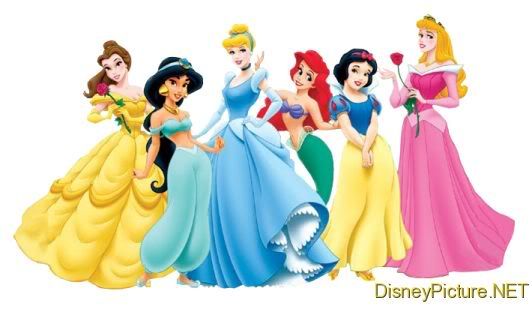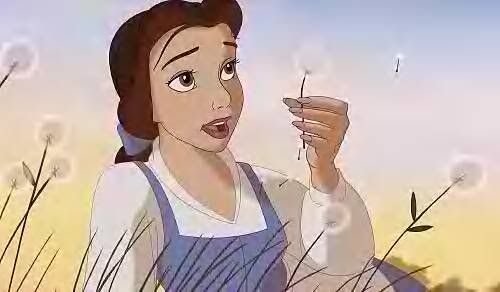Chapter 10 talks about how women in film used to be represented as virginal girls whose only goal in life was to settle down with a nice husband that will provide for them. While these ideas have been, for the most part, greatly reduced in films today, but the mentality still exists in some of the most popular kid’s films: Disney princess movies. Granted, while the majority of these are from several decades ago, the products based on the movies are still packed onto toy store shelves and fed to kids through television advertisements everyday. But what are these films teaching young girls? Nothing good, in my opinion.
First off, there’s the obvious fact that all the heroines in these movies are royal and beautiful. They are princesses by birth and are thus entitled to wealth, power, and anything their heart desires. What girls seem to learn from this is that money and beauty are the key to getting boys to like you and gaining overall happiness in life. That’s why it astounds me that parents are so quick to spoon feed this idea to their daughters. My mother owned an in-home daycare for the first fifteen years of my life, so I’ve spent a lot of time around kids and their parents. You’d be surprised how many of these parents bought their daughter’s all the pink, frilly princess clothes, back packs, etc. While there’s nothing inherently wrong about that, these parents are generally the ones who also call their daughters their little “princess.” This is where things hit a level that I don’t think is healthy. These are the kids that always seemed to feel like they should be able to get their own way, have the toys they want, and think they know the answer to everything. Now, some might say that this is simply because of their age and that every kid acts like that, and there’s definitely some truth in that. But in my experience, these girls that are told repeatedly that they are princesses and royalty tend to have these tendencies far more often and on a much bigger scale.
The thing that really connects these films to sexist themes is the fact that all of the princesses are searching for their “true love”, generally in the form of a rich prince that will be able to care and provide for them. Sleeping Beauty even has the iconic song where the young princess sings, “some day my prince will come.” This mentality is so blatant in many of these films that it surprises me they are still so popular today. You’d think parents would see something like that on screen and not want their child to see it and be influenced by it. Very few of the characters are represented as strong women, instead being shown as homemakers (Snow White spends most of the movie cleaning up the house and preparing food for the seven dwarves), and completely helpless (Sleeping Beauty will literally die without loves true kiss). Does no one see anything wrong with this? Really?
The one heroine that is, I think, represented well in these films, isn’t actually a princess. Belle from Beauty and the Beast is a strong-willed woman with book smarts, who actually turns down a direct proposal for marriage early on in the film, an unheard-of act when you look at the other princess characters she’s often associated with. She sacrifices herself for her father, showing bravery the ability to think beyond herself. While she does fall in love throughout the course of the movie to a man (beast) who turns out to be a prince, it never feels like her ultimate goal is to find a man to settle down with and have care for her. Not to mention, she actually spends some time with the guy and gets to know him before “falling in love.” In fact, she doesn’t even like him at first. The couple actually has a realistic story arc, which is more than most of these films can say. Sleeping Beauty sees her prince in the forest and is instantly entranced by him. Snow White falls in love when the guy kisses her to wake her up after eating a poison apple from a witch. Cinderella seems set on marrying the prince long before she’s even met him. What this is teaching children is that there is a single moment when you will meet your true love and it will be magical and you’ll live happily ever after. Call me a pessimist if you like, but I believe relationships have stages. You don’t go from meeting a person on the street to being deeply and endlessly in love with them in a matter of seconds. Relationships take work, and Belle seems to be the only Disney heroine that knows that.
Movies that are made nowadays have, for the most part, moved away from the mentality that a woman’s only goal in life is to find a good man to care for and care for them. Unfortunately, as long as parents continue to feed their children the blatantly sexist Disney princess films, that idea will still exist to some extent. Regardless of the fact these films are considered classics, I will think long and hard about whether or not I want my kids to see them when I have children, and I’d encourage others to do the same.





You do a much better job of staying close to the course literature in this post. Nice work.
ReplyDelete- Ruth